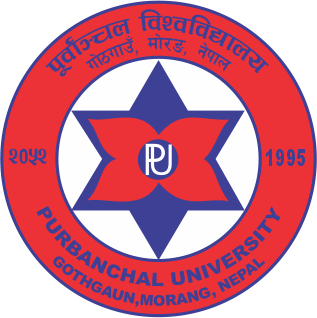Knowledge Regarding Attention Deficit Hyperactivity Disorder among School Teachers at Biratnagar, Nepal.
Keywords:
Attention Deficit Hyperactivity Disorder, Knowledge, School, TeachersAbstract
Introduction: Attention Deficit Hyperactivity Disorder is the common behavioral condition of childhood. Teachers hold a significant responsibility in identification, recommendation and management of Attention Deficit Hyperactivity Disorder. Their knowledge is of direct benefit to students with Attention Deficit Hyperactivity Disorder and their families.
Objective: The objective of the study were to assess the teachers level of knowledge regarding Attention Deficit Hyperactivity Disorder and to find out the association between teachers level of knowledge and the selected sociodemographic characteristics at Biratnagar, Nepal.
Method: A descriptive cross-sectional study was conducted among 180 school teachers in Biratnagar, Nepal, from August 2021 to July 2022. Ethical approval was obtained from the Institutional Review Committee of Purbanchal University School of Health Sciences and informed consent was obtained from all study participants. School teachers were randomly selected for data collection from six government schools. A standard tool Knowledge of Attention Deficit Disorders Scale designed by Sciutto and colleagues was used. Collected data were analyzed using statistical Package for the Social Sciences (SPSS ) version 21. Both descriptive and inferential statistics were used for data analysis.
Result: Among 180 participants, only 16.1 % had adequate knowledge and majority 83.9 % of the respondents had inadequate knowledge regarding Attention Deficit Hyperactivity Disorder. A significant association was observed between knowledge level and age (p=0.024) and subject taught (p=.001) at p<0.05 level of significance.
Conclusion: In this study, majority of the teachers had inadequate knowledge regarding Attention Deficit Hyperactivity Disorder. It is important to provide in-service education and consistently raise public awareness through media about behavioral issues like Attention Deficit Hyper Activity disorder.
References
Uprety K. Essentials of Child Health Nursing, 4th ed. Kathmandu: Akshab Publication. p. 218
See LC, Li HM, Chao KY, Chung CC, Li PR, Lin SR. Knowledge of attention-deficit hyperactivity disorder among the general public, parents, and primary school teachers. Medicine (Baltimore). 2021 Mar 26;100(12): e25245. DOI: 10.1097/MD.0000000000025245.
Dessie M, Techane M, Tesfaye B. Gebeyehu DA. al. Elementary school teachers knowledge and attitude towards attention deficit-hyperactivity disorder in Gondar, Ethiopia: a multi-institutional study. Child and adolescent psychiatry and mental health. 2021;15(16) DOI:10.1186/ s13034-021-00371-9
Rimal, H, Pokharel A. Prevalence of Attention Deficit Hyperactivity Disorder among School Children and Associated Co-morbidities - A Hospital Based Descriptive Study. Kathmandu University Medical Journal. 2016;14(55) : 226-230
Alfageer HH, Aldawodi MD, Al Queflie SA, Masud N, Al Harthy NA, Alogayyel N, et al. Knowledge and attitude of male primary school teachers about attention deficit and hyperactivity disorder in Riyadh, Saudi Arabia. Journal of Natural Science, Biology and Medicine. 2018;9:257-62 DOI: 10.4103/jnsbm. JNSBM_232_17
Shrestha T. Essentials of Child Health Nursing.4th ed. Kathmandu: Medhabi Publications; Kathmandu.p.199 Knowledge Regarding Attention Deficit Hyperactivity Disorder among School Teachers at Biratnagar, Nepal.
Bhattarai L, Sharma M. Knowledge regarding attention deficit hyperactivity disorder of children among school teachers at Lalitpur. Journal of Chitwan Medical College. 2019;9(30):64-68. DOI: https://doi.org/10. 3126/jcmc.v9i4.26905
Mirza N, Nisar N, Ikram Z. Knowledge, Attitude & Practices Towards Attention Deficit Hyperactivity Disorder Among Private Elementary School Teachers of Karachi, Pakistan. JDUHS. 29Apr 2017 ;11(1):11-7. DOI:10.36570/jduhs.2017.1.451
Hosseinnia M, Mazaheri MA, Heidari Z. Knowledge, attitude, and behavior of elementary teachers regarding attention deficit hyperactivity disorder. Journal of Education and Health Promotion. 2020;9(20) DOI: 10. 4103/jehp.jehp_696_19.
Safaan NA, El-Nagar SA, Saleh AG. Teachers' Knowledge about Attention Deficit Hyperactivity Disorder among Primary School Children. American Journal of Nursing Research. 2017;5(2): 42-52.DOI: 10.12691/ajnr-5-2-2
Kadhim Jawad AL Madwah, Abdul Kareem A. Qasim , Sajjad S. etal Knowledge of Primary School Teachers' about Attention Deficit Hyperactivity Disorder in Basra city feb 2020;19(3): 66-69 DOI:10.36347/sjams.2020. v08i02.023
Alshehri AM, Shehata SF, Almosa KM, Awadalla NJ. School teachers' Knowledge of Attention-Deficit/Hyperactivity Disorder-Current Status and Effectiveness of Knowledge Improvement Program: A Randomized Controlled Trial. Int J Environ Res Public Health. 2020 Aug 3;17(15):5605. DOI: 10.3390/ijerph17155605.
Amiri S, Noorazar SG, Fakhari A, Gorji Darounkolaee A, Bahari Gharehgoz A. Knowledge and Attitudes of Preschool Teachers Regarding Attention Deficit Hyperactivity Disorder, Iran Journal of Pediatrics. 2017; 27(1):e3834. DOI: 10.5812/ijp.3834
Kaur G, Khoinaijam N. A Descriptive Study to assess the knowledge regarding ADHD among primary school teachers in selected schools of district Mohali with a view to develop informational booklet. Asian J.Nursing Education and Research. 2018; 8(3):399-
DOI: 10.5958/2349-2996.2018.00082.4
Al-Moghamsi, EY, Aljohani A. Elementary school teachers' knowledge of attention deficit/hyperactivity disorder. J family Med Prim Care.2018; 7(5): 907-915. DOI:10.4103/jfmpc.jfmpc_183_18
Shroff H, Hardikar-Sawant S, Prabhudesai AD. Knowledge and Misperceptions about Attention Deficit Hyperactivity Disorder (ADHD) among School Teachers in Mumbai, India. International Journal of Disability, Development and Education. 2017;64:5, 514-525. DOI: 10.1080/10349 12X.2017.1296937
Manju SK. Knowledge and Attitude regarding Attention Deficit Hyperactivity Disorder among Primary School Teachers Working in Selected Primary Schools of Kolkata. International Journal of Science and Research. 2019; 1(8): 50-52. DOI: 10.21275/ART 2019 4045
Downloads
Published
How to Cite
Issue
Section
License
Copyright (c) 2024 Purbanchal University Health Journal

This work is licensed under a Creative Commons Attribution-NonCommercial 4.0 International License.
Purbanchal University Health Journal (PUHJ) allows to read, download, copy, distribute, print, search, or link to the full texts of its articles and allow readers to use them for any other lawful purpose. Copyright is retained by PUHJ. The PUHJ work is licensed under a Creative Commons Attribution-Non-commercial 4.0 International (CC BY-NC 4.0).



